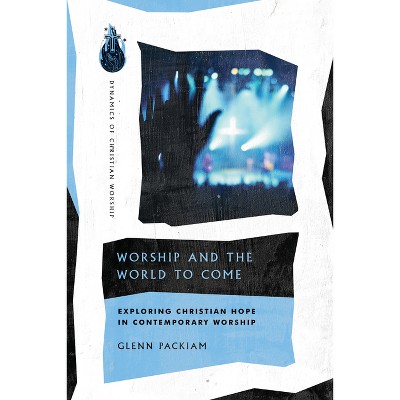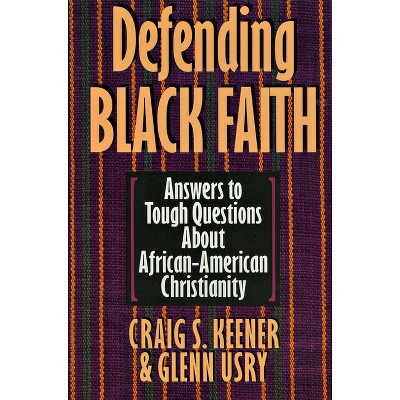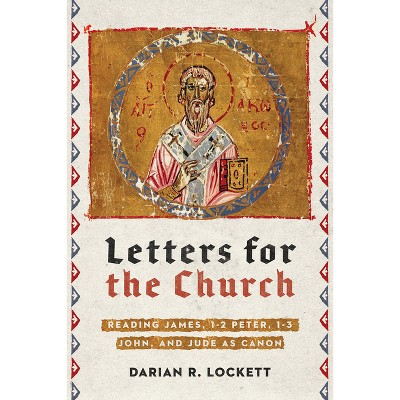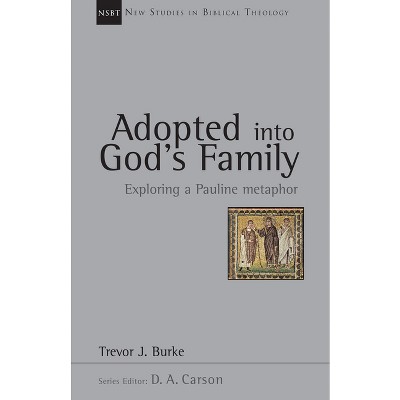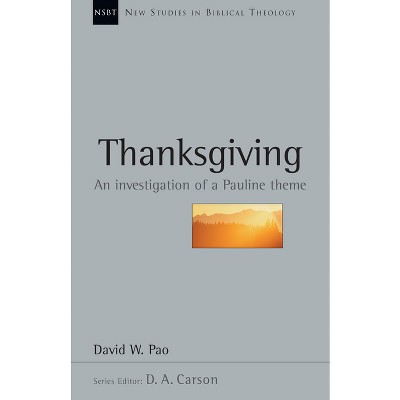About this item
Highlights
- ECPA 2017 Christian Book Award FinalistDoes the Bible need to be saved?Over the course of the centuries, Bible scholars and publishers have increasingly added "helps"--chapter divisions, verses, subheads, notes--to the Bible in an effort to make it easier to study and understand.
- About the Author: Glenn R. Paauw is vice president, global Bible engagment, at Biblica and a senior fellow at the Institute for Bible Reading.
- 230 Pages
- Religion + Beliefs, Biblical Criticism & Interpretation
Description
About the Book
Has dividing the Bible into chapters and verses led to sampling Scripture rather than reading it deeply? According to author Glenn R. Paauw, misreading the Bible has divorced it from its context, leaving only a database of quick answers to life's questions. In these pages he introduces us to seven new understandings of Scripture to help us read and live the Bible well.
Book Synopsis
- ECPA 2017 Christian Book Award Finalist
Does the Bible need to be saved?Over the course of the centuries, Bible scholars and publishers have increasingly added "helps"--chapter divisions, verses, subheads, notes--to the Bible in an effort to make it easier to study and understand. In the process, however, these have led to sampling Scripture rather than reading deeply. According to author Glenn R. Paauw, the text has become divorced from the Bible's literary and historical context, leading to misinterpretation and a "narrow, individualistic and escapist view of salvation." Rather than being a culture-shaping force, the Bible has become a database of quick and easy answers to life's troubling questions. But these deficiencies can be corrected by engaging in what the author calls "big readings."In these pages Paauw introduces us to seven new (to us) understandings of the Bible as steps on the path to recovering one deeply engaged Bible. With each "new" Bible presented, deficiencies in how we currently interact with the Bible are explored, followed by recommendations for a new practice. The Bible's transformative power is recovered when we remove the chains Christians have applied to it over the centuries. The Bible does not need to be saved because of any defect in itself, but because we have distorted and misread it. Saving the Bible from Ourselves provides students of the Bible a new paradigm for reading and living the Bible well.
Review Quotes
"As someone who has participated in creating a Bible translation and a study Bible, I found Paauw's arguments thought-provoking and convicting. . . . This is a great book for anyone who is interested in thinking deeply about our engagement with the Bible and how it could be improved."
--Elliot Ritzema, Bible Study Magazine, November/December 2016"Those looking for a refreshing approach to Bible studies can find enriching insights in Saving the Bible from Ourselves."
--Taylor Berglund, Charisma, July 2016"Well-written, thought-provoking, and bold."
--David Mundt, CBA Retailers + Resources, May, 16, 2016About the Author
Glenn R. Paauw is vice president, global Bible engagment, at Biblica and a senior fellow at the Institute for Bible Reading. A native of Colorado, Glenn loves to climb the state's 14,000-foot peaks and to cycle the back roads of the Front Range.







